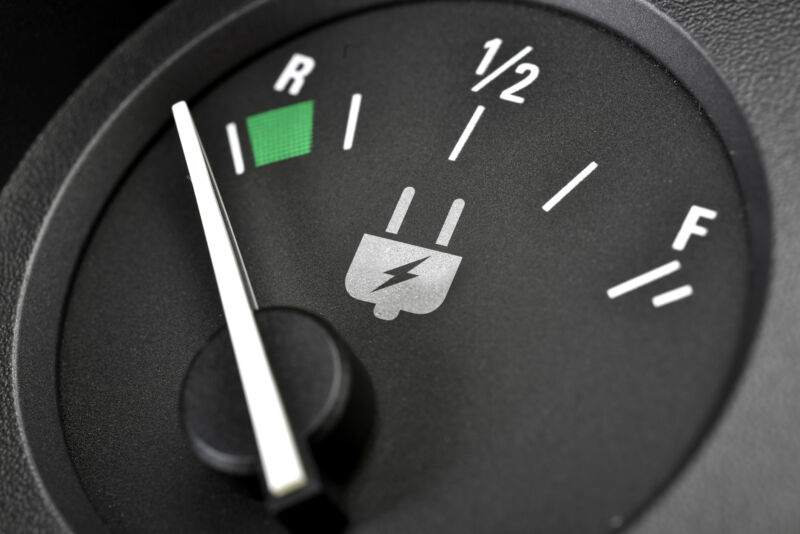How far can you drive an electric car at 70mph before it stops?

Enlarge (credit: Getty Images)
The personal car has been sold to society as an engineered expression of freedom, as told through stories as varied as the dust bowl migration of The Grapes of Wrath to the irresponsible road racers of The Cannonball Run. And decades of dependence on fast-flowing liquid hydrocarbons for fuel have left little tolerance for spending many minutes more plugged in and stationary, waiting for lithium-ion cells to recharge. So when it comes to bench-racing electric vehicles, the only statistic most people care about is how far it can go before you need to plug it in again.
The situation isn't exactly helped by the tests used by regulators. In Europe, the WLTP test cycle averages 29mph (47km/h) and generates range estimates that should be considered mere fantasies on North American roads. The US Environmental Protection Agency's test averages almost twice that, but then gets subjected to a fudge factor that heavily penalizes some while flattering others. Which is why it's interesting to see the results of an independent range test of several EVs that involved charging them up then driving them at a steady 70mph (112km/h) until they ground to a halt.
The study was commissioned by Polestar, which wanted to rank its new Polestar 2 EV against three competitors: the Tesla Model 3 Performance, Jaguar I-Pace, and Audi e-tron. The test procedure, conducted on July 28 on a three-mile (4.8km) oval at Fowlerville Proving Ground in Michigan, was quite straightforward.
Read 8 remaining paragraphs | Comments